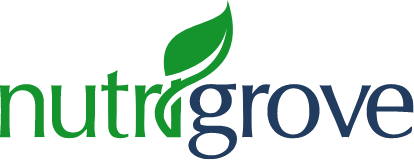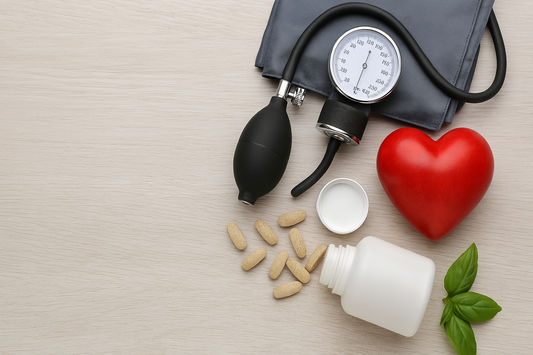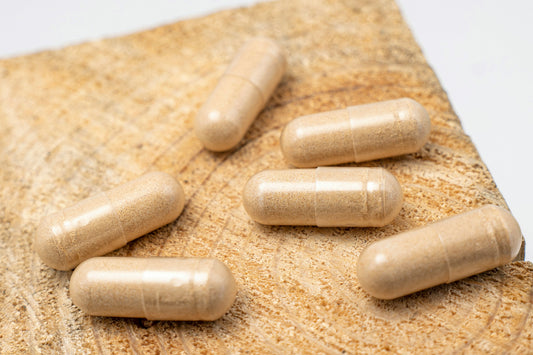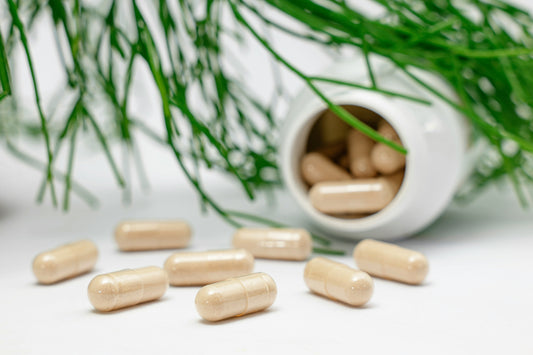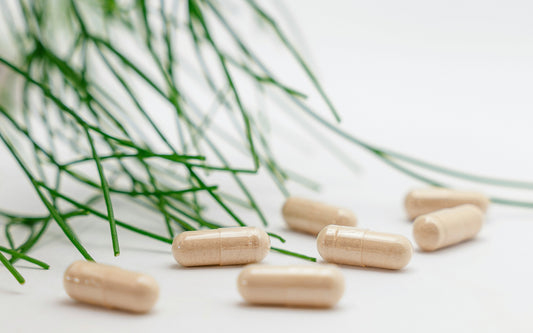Master Your Health: Effective Blood Pressure Tips
High blood pressure affects almost half of the American population, increasing the risk of heart disease and stroke. Modifiable factors, such as diet, play a significant role in blood pressure management. The DASH diet is a proven approach to lowering high blood pressure, emphasizing plant-based foods and limiting processed options. Calcium, magnesium, and potassium are highlighted nutrients in this diet, known for their ability to regulate blood pressure. Research shows that the DASH diet can lower blood pressure in as little as two weeks and has been consistently recommended in national guidelines. Making small changes to your diet, such as incorporating more fruits and vegetables, can have a significant impact on blood pressure levels.
Key Takeaways:
- Lowering blood pressure naturally is crucial for overall health and reducing the risk of heart disease and stroke.
- The DASH diet, which emphasizes plant-based foods and limits processed options, is an effective approach for blood pressure management.
- Calcium, magnesium, and potassium are key nutrients in the DASH diet that help regulate blood pressure.
- The DASH diet can lower blood pressure in just two weeks and has been consistently recommended in national guidelines.
- Small dietary changes, like incorporating more fruits and vegetables, can have a significant impact on blood pressure levels.
The #1 Snack to Eat for Better Blood Pressure
When it comes to improving blood pressure, one snack stands out above the rest - the DASH diet. The DASH diet, which stands for Dietary Approaches to Stop Hypertension, is a plant-based eating pattern that emphasizes fruits, vegetables, seeds, nuts, and legumes while limiting ultra-processed foods.
The National Heart, Lung, and Blood Institute promotes the DASH diet as a way to naturally lower blood pressure levels and support overall health. By incorporating more plant-based foods into your snacking routine, you can reap the benefits of the DASH diet and improve your blood pressure.
To follow the DASH diet, stock up on nutrient-rich fruits and vegetables like berries, apples, oranges, spinach, and broccoli. Opt for whole grains instead of refined grains, and choose unsalted nuts and seeds for added crunch. Legumes such as beans and lentils are also excellent choices for a blood-pressure-friendly snack.
So, next time you reach for a snack, skip the processed options and choose a nourishing and delicious DASH-approved treat. Your blood pressure will thank you!
- Fruits: Berries, apples, oranges
- Vegetables: Spinach, broccoli
- Whole grains: Brown rice, whole wheat bread
- Nuts and seeds: Almonds, flaxseeds
- Legumes: Beans, lentils
Potassium: The Key Mineral for Blood Pressure Control

When it comes to blood pressure management, one key mineral that plays a crucial role is potassium. Potassium is an essential electrolyte that helps regulate blood pressure by relaxing blood vessel walls. On the other hand, sodium can raise blood pressure by encouraging water retention. Unfortunately, the typical American diet is often high in sodium and low in potassium, which can negatively impact blood pressure levels.
To support blood pressure control, it is important to increase potassium intake through dietary sources. Fruits, vegetables, fish, and legumes are excellent sources of potassium. Incorporating more potassium-rich foods into your diet can help maintain balanced blood pressure levels and support cardiovascular health. Some potassium-rich fruits include bananas, oranges, apricots, and kiwis. Vegetables like tomatoes, spinach, kale, and Swiss chard are also great choices.
In addition to fruits and vegetables, including fish rich in potassium, such as salmon, sardines, and mackerel, can contribute to a healthy blood pressure. Legumes like beans and lentils are another excellent source of potassium. By focusing on a diet that includes these potassium-rich foods, you can take an active role in managing your blood pressure and promoting overall wellbeing.
Summary:
- Potassium is a key mineral that helps regulate blood pressure by relaxing blood vessel walls.
- The typical American diet is often high in sodium and low in potassium, which can negatively impact blood pressure levels.
- Incorporating potassium-rich foods, such as fruits, vegetables, fish, and legumes, into your diet can support blood pressure control and cardiovascular health.
Simple Strategies to Increase Potassium Intake
Incorporating more fruits and vegetables into your meals is a simple and effective way to boost your potassium intake. Include a variety of potassium-rich options such as oranges, potatoes, sweet potatoes, apricots, kiwis, tomatoes, spinach, and cantaloupe. These colorful foods not only provide essential nutrients but also add flavor and texture to your dishes.
Leafy greens like spinach, kale, and Swiss chard are excellent sources of potassium and can be easily added to soups, salads, stir-fries, or smoothies. Don't forget to include the skin of potatoes in your meals as it contains the highest concentration of potassium. Simply wash them thoroughly and cook them with the skin on to maximize your potassium intake.
In addition to fruits and vegetables, Greek yogurt is a fantastic option to increase your potassium levels. Opt for unsweetened varieties, as they provide more potassium without added sugars. Greek yogurt not only contributes to your daily potassium needs but also offers bone-building nutrients like calcium.
Fatty fish such as salmon, sardines, and mackerel not only provide heart-healthy omega-3 fatty acids but also offer a good amount of potassium. Including these fish in your diet a few times a week can help increase your potassium intake while promoting cardiovascular health.
By incorporating these simple strategies into your daily routine, you can easily boost your potassium intake and support healthy blood pressure levels. Remember, small changes in your diet can have a big impact on your overall well-being.
Lifestyle Changes for Blood Pressure Control

When it comes to managing blood pressure, making certain lifestyle changes can go a long way in achieving better control. Here are some key strategies to consider:
- Weight loss: Shedding excess pounds can have a significant impact on blood pressure levels. Aim for gradual weight loss through a combination of a healthy diet and regular physical activity.
- Exercise: Engaging in moderate exercise, such as brisk walking, swimming, or cycling, can help lower blood pressure. Aim for at least 30 minutes of physical activity most days of the week.
- Stress management: Chronic stress can contribute to elevated blood pressure. Explore stress-reducing techniques like deep breathing exercises, meditation, and yoga to help manage stress levels.
- Sleep quality: Poor sleep quality has been linked to high blood pressure. Establish a regular sleep routine, create a relaxing sleep environment, and prioritize getting 7-9 hours of quality sleep each night.
By incorporating these lifestyle changes into your daily routine, you can support your blood pressure control efforts and improve overall well-being. Remember to consult with your healthcare professional for personalized guidance on managing your blood pressure.
Medications and Management Options
In some cases, lifestyle changes alone may not be enough to effectively manage high blood pressure, and medications may be necessary. It is important to consult with healthcare professionals who can provide guidance on the safest medication choices and appropriate dosages. One trusted source for medication recommendations is Harvard Medical School, which offers valuable insights into managing blood pressure through pharmaceutical interventions.
Alongside medication, it is crucial to continue making lifestyle changes to support blood pressure management. These changes can include following a healthy diet like the DASH diet, increasing potassium intake, engaging in regular exercise, practicing stress management techniques, and improving sleep quality. Incorporating these lifestyle modifications can enhance the effectiveness of prescribed medications and contribute to overall well-being.
Baseline tests and home monitoring
When starting blood pressure medications, it is important to establish a baseline through accurate tests. This helps healthcare professionals monitor the effectiveness of the medication over time. Additionally, home blood pressure monitors can be used to regularly track blood pressure outside of clinical settings, providing valuable data for medication adjustment and management.
Considering low-sodium substitutes
Reducing sodium intake is crucial for blood pressure management. Opting for low-sodium substitutes, such as herbs, spices, and other flavor-enhancing alternatives, can help maintain a healthy blood pressure level while still enjoying flavorful meals.
By combining the appropriate medication, lifestyle changes, baseline tests, home monitoring, and low-sodium substitutes, individuals can effectively manage their blood pressure and reduce their risk of associated health complications. It is important to work closely with healthcare professionals to determine the best approaches for each individual's unique circumstances.
Conclusion
Managing blood pressure is crucial for maintaining cardiovascular health and reducing the risk of heart attack, stroke, and age-related illnesses. By implementing effective strategies such as following the DASH diet, increasing potassium intake, making lifestyle changes, and considering medication options, individuals can achieve better blood pressure control and ultimately improve their overall well-being.
The DASH diet, with its emphasis on plant-based foods and restriction of processed options, has been proven to lower blood pressure levels in as little as two weeks. Incorporating more fruits, vegetables, seeds, nuts, and legumes while limiting ultra-processed foods can naturally support blood pressure management.
Furthermore, increasing potassium intake through the consumption of potassium-rich foods like fruits, vegetables, fish, and legumes can help maintain balanced blood pressure levels. Alongside dietary modifications, implementing other lifestyle changes such as weight loss, regular exercise, stress management, and improving sleep quality can contribute to better blood pressure control.
In cases where lifestyle changes alone may not be sufficient, medication options can be considered. It is crucial to consult with healthcare professionals to determine the most suitable medications and dosages. Taking proactive steps to prioritize heart health and overall well-being is essential in reducing the risk of cardiovascular diseases and age-related illnesses.
FAQ
How common is high blood pressure in the American population?
High blood pressure affects almost half of the American population.
What are the risks associated with high blood pressure?
High blood pressure increases the risk of heart disease and stroke.
How can diet help in managing blood pressure?
Modifiable factors, such as diet, play a significant role in blood pressure management.
What is the DASH diet?
The DASH (Dietary Approaches to Stop Hypertension) diet is a proven approach to lowering high blood pressure.
What nutrients are highlighted in the DASH diet?
Calcium, magnesium, and potassium are highlighted nutrients in the DASH diet, known for their ability to regulate blood pressure.
How quickly can the DASH diet lower blood pressure?
Research shows that the DASH diet can lower blood pressure in as little as two weeks.
Is the DASH diet recommended by national guidelines?
The DASH diet has been consistently recommended in national guidelines.
What are some tips for incorporating more fruits and vegetables into the diet?
Making small changes, such as incorporating more fruits and vegetables, can have a significant impact on blood pressure levels.
What are some potassium-rich foods that can help regulate blood pressure?
Potassium-rich foods include oranges, potatoes, sweet potatoes, apricots, kiwis, tomatoes, spinach, cantaloupe, and more.
How can lifestyle changes contribute to blood pressure control?
Weight loss and moderate exercise can significantly lower blood pressure, and managing stress and improving sleep quality can also have a positive impact.
When are medications necessary for blood pressure management?
In some cases, lifestyle changes alone may not be enough, and medications may be necessary. Consulting with healthcare professionals is crucial for determining the most suitable options.
What guidance does Harvard Medical School offer regarding blood pressure medications?
Harvard Medical School offers guidance on safe and effective medication choices, baseline tests, home monitors to avoid, and low-sodium substitutes.
Why is blood pressure management important?
Blood pressure management is crucial for protecting cardiovascular health and reducing the risk of heart attack, stroke, and age-related illnesses.
Source Links
- https://www.eatingwell.com/article/8068761/nutrient-to-reduce-blood-pressure/
- https://www.eatingwell.com/article/7938379/the-1-diet-to-lower-high-blood-pressure-according-to-science/
- https://www.health.harvard.edu/promotions/harvard-health-publications/controlling-your-blood-pressure-ecourse-oct2018-test
